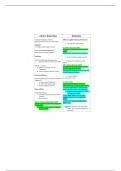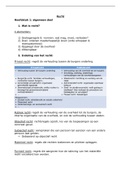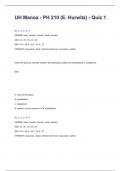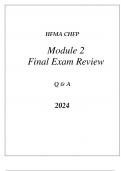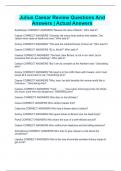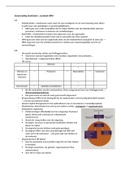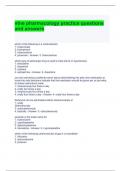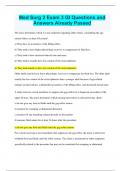Lecture notes
La 204 Actus Reus - Omissions Liability and Causation Notes
- Module
- Criminal Law
- Institution
- The University Of Warwick (UoW)
This is a comprehensive and detailed note on Actus Reus - Omissions Liability and Causation for La 104. * Essential!! *Precise!! * For you!!
[Show more]
